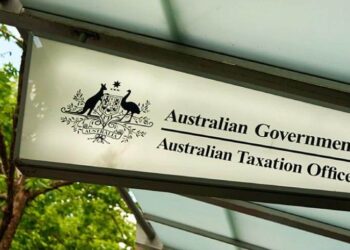Last week, the Australian Bureau of Statistics announced that the All Groups Consumer Price Index (CPI) was 117.2 for the December 2020 quarter. With the figure above 116.9, the general transfer balance cap will be indexed to $1.7 million on 1 July 2021.
The cap increase depended on prices (as measured by the consumer price index, CPI) going up by just 0.6 of a percentage point between December 2019 and December 2020 — something that was considered inevitable back in January 2020.
Heffron managing director Meg Heffron stated in a blog that on the outset, it is a good thing where important thresholds for retirement tax concessions should definitely increase over time to reflect the fact that the cost of living goes up.
“But I must confess I have some strong views on the way in which this particular threshold works that are not entirely complimentary,” she said.
“Firstly, who invented the overly complicated system that sees us each have an individual transfer balance cap (TBC) depending on how much of the cap we’ve ever used in the past?
“That means there are 100 possible individual transfer balance caps in 2021–22 and 200 once we get our next round of indexation in a few years’ time. Not only are there too many possibilities, the method is too complicated.”
Ms Heffron said to work out an individual client’s TBC, “we have to look through their entire transfer balance account history”.
“We find the day when they had used ‘the most ever’ of their cap and work out their indexation based on the proportion of the cap they had left at that moment,” she said.
“It doesn’t matter if they used all their cap for a few days but then subsequently settled well within the $1.6 million; we have to use the ‘worst ever’ figure. Among many other things, this does highlight the importance of thinking carefully before setting up a large pension and then commuting a significant proportion some time later.”
Ms Heffron analysed that this was similar in the old Reasonable Benefit Limits system, where everyone would benefit from the indexation of the RBLs but there was also the need to index benefits taken in the past.
“That was overly complicated, too. It was really designed to achieve the same outcome — philosophically, both methods ensure that people who took maximum advantage of a particular threshold at the time they started their pensions etc don’t get any more benefit when the threshold is indexed in the future,” she said.
Ms Heffron also highlighted further complexities should be addressed around the TBC threshold that can become an unnecessary roadblock.
“Firstly, the $1.6 million threshold used to work out whether an SMSF can claim a tax exemption on its investment income using the ‘segregated method’ stays the same. It’s not linked to the general transfer balance cap even though we picked the same number,” she said.
“Secondly, the rules for bringing forward non-concessional contributions are a combination of contribution caps and the general transfer balance cap. For example, currently, anyone with a total superannuation balance of $1.6 million or more at 30 June 2020 has a non-concessional cap of $nil in 2020–21. From 1 July 2021, the relevant number will be $1.7 million.”
But currently, anyone wanting to use the three-year bring-forward rule and contribute $300,000 in non-concessional contributions in 2020–21 had to have less than $1.4 million in super at 30 June 2020.
This also won’t be completely clear until the end of February, according to Ms Heffron.
“If we know that the general TBC is to be indexed, why don’t we know whether or not the contribution caps are changing, too? Because they are linked to a different index, the AWOTE rather than CPI. Were we trying to make this complicated?” she said.
Ms Heffron stated a need for a simpler approach and to cut red tape to reduce complexities.
“Everyone should get the $1.7 million general transfer balance cap — no personal indexation complexity,” she said.
“Anyone whose total super balance is less than the general transfer balance cap at 30 June can use the full three-year bring-forward rules for the following financial year (assuming they meet the other normal age-based rules for making contributions and bringing forward).”
Ms Heffron also recommends that anyone whose total super balance is higher should continue to have a non-concessional contributions cap of $nil.
“I think that would take a lot of the complexity out without suddenly creating an enormous loophole for wealthy people to exploit to the detriment of the wider community. It would be great to see some Treasury modelling on this,” she said.



Scrap the Cap!
Let funds earn as much as they can and simply tax the profit above a certain indexed threshold at company rates. The profits are taxed, so it doesn’t matter if the member takes a very large or a very small pension within the minimum prescribed. The government have their share! Just let the fund will pay the tax. If a member takes and stores wealth outside of super, they will have to pay tax on profits/earnings in any case. Why note encourage the fund to earn as much as possible, as this will translate into Government revenue. But fairly so.
Meg is a genius – everyone should listen to her!!!!
Definitely need a better approach that considers the big picture of tax & super policy but making it simple.
Meg’s suggestions are the most sensible & reasonable approach I can think of. Meg should run for government!
can’t agree more. the individual caps have created an overly complex system
Especially with the complications around actually viewing a clients TBC recorded with the ATO unless you are also a tax agent for the client as well.
The above is a common-sense approach. Rather than making it rocket science.